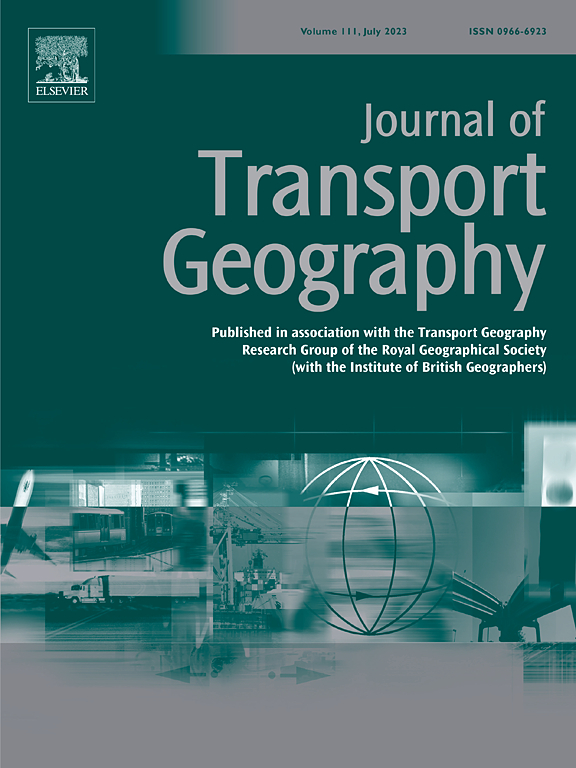在个人影响、生态意识和对生态士绅化的恐惧之间,支持限车政策。证据来自柏林的一个小插曲分析
IF 6.3
2区 工程技术
Q1 ECONOMICS
引用次数: 0
摘要
由于汽车排放的温室气体约占德国温室气体排放总量的六分之一,德国交通系统的可持续转型对应对气候变化至关重要。然而,减少私家车使用的有效政策往往不受欢迎。为了更好地理解其中的原因,我们在2021年对柏林两个人口稠密、公共交通基础设施广泛的社区的居民进行了一项有代表性的调查(N = 1041)。在当地市政当局的帮助下,我们构建了三个假设的场景(小场景),这些场景在限制私家车停车和其他空间特权方面具有不同的侵入性。我们的目标是确定不同的个人层面因素在接受这些政策措施方面的作用:个人影响(使用私家车和其他交通方式的习惯),对机动私人交通造成的当地问题的认识,一般的生态意识,社会经济地位,以及对拟议政策导致的社区租金上涨的恐惧。我们发现,个人影响、对租金上涨的恐惧、生态意识,以及在较小程度上的地方问题意识,解释了居民对政策支持的56%的变化。居民的社会经济地位(收入、受教育程度、相对贫困)并不是他们如何看待限车政策的有效指标。对租金上涨的恐惧并没有被广泛认为是抵制限车政策的一个因素,因此应该得到研究人员和政治家的更多关注。本文章由计算机程序翻译,如有差异,请以英文原文为准。
Support for car-restrictive policies between individual affectedness, eco-consciousness, and fear of ecological gentrification. Evidence from a vignette analysis in Berlin
As cars account for about one sixth of all greenhouse gas emissions in Germany, a sustainable transformation of the German transport system is essential to combat climate change. However, effective policies to reduce private car use are often broadly unpopular. To better understand why, we conducted a representative survey of residents in two densely populated Berlin neighborhoods with extensive public transportation infrastructure in 2021 (N = 1041). With the help of the local municipality, we constructed three hypothetical scenarios (vignettes) of varying intrusiveness in restricting parking and other spatial privileges of private cars. We aim to identify the role of different individual-level factors for the acceptance of such policy measures: individual affectedness (habits of using private cars and other modes of transport), awareness of local problems caused by motorized private transport, general eco-consciousness, socio-economic status, and fear of rising rents in the neighborhood caused by the proposed policies. We find that individual affectedness, fear of rising rents, eco-consciousness, and, to a lesser extent local problem awareness explain about 56 % of the variation in residents' support for the policy. The socioeconomic status of residents (income, educational attainment, relative deprivation) is not an effective indicator of how they perceive car-restrictive policies. The fear of rising rents has not been widely acknowledged as a factor driving resistance to car-restrictive policies, and thus merits greater attention from both researchers and politicians.
求助全文
通过发布文献求助,成功后即可免费获取论文全文。
去求助
来源期刊

Journal of Transport Geography
Multiple-
CiteScore
11.50
自引率
11.50%
发文量
197
期刊介绍:
A major resurgence has occurred in transport geography in the wake of political and policy changes, huge transport infrastructure projects and responses to urban traffic congestion. The Journal of Transport Geography provides a central focus for developments in this rapidly expanding sub-discipline.
 求助内容:
求助内容: 应助结果提醒方式:
应助结果提醒方式:


